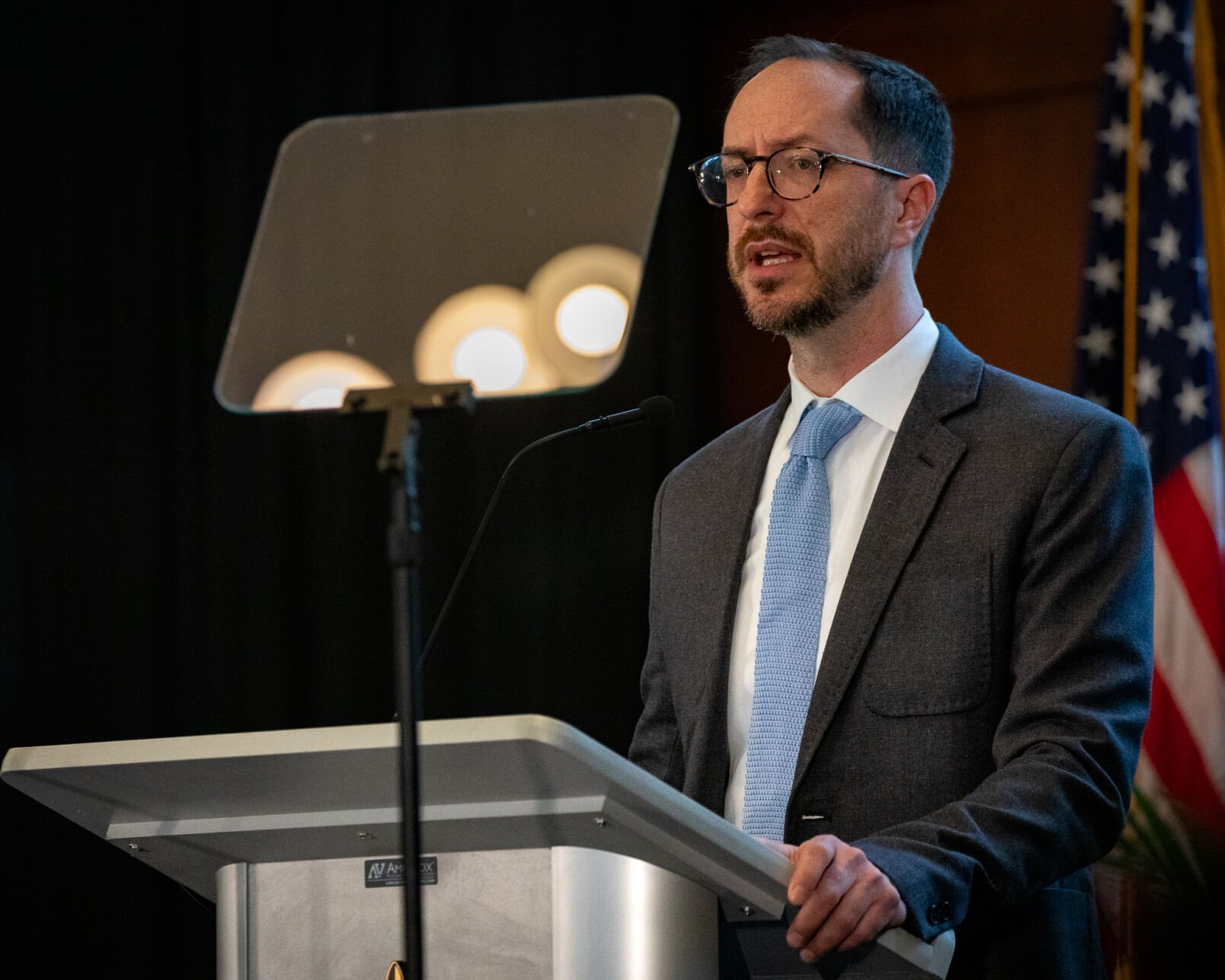Budget season is crunch time for local elected officials. Meetings, hearings and work sessions fill the June calendar, ticking down the days until the end of the city’s fiscal year on June 30, when the Metro Council must pass an annual operating budget or allow the mayor’s proposed budget to go into effect by default.
Mayor Freddie O’Connell filed his $3.6 billion budget weeks ago, allowing the facts and figures to follow his annual State of Metro address. The council, led by Budget and Finance Committee Chair Delishia Porterfield, leads its parallel budget-making process in full public view. That includes a marathon public hearing, in which Nashvillians line up to speak directly to councilmembers about budget items and city priorities, as well as more casual work sessions between city staff and members. Elected officials also compile specific budget requests into wish lists reviewed by Porterfield and released to the public.
Offering vision but few details, mayor shifts focus to housing as reports pile up about supply shortfall
As the city gets wealthier, cost of living has shot up, led in part by sky-high real estate values and housing prices. After this year’s property value reappraisal, O’Connell’s new budget, if passed, would set a new property tax that will dramatically increase the city’s total revenue from so-called ad valorem taxes, the backbone of the city’s finances. The details are complicated, but the effect is simple: more money from property owners, whose investments have continued to appreciate in Nashville’s lucrative land market. Porterfield has stated publicly that her budget would not impose a rate higher than that of the mayor, who has already been pilloried by the city’s libertarian and conservative minority for increasing homeowners’ tax burdens.
More revenue means more money into city services, a common theme in O’Connell’s recent public speaking. Department budgets will likely increase across the board with big investments in the Nashville Fire Department, the Metro Nashville Police Department and the Office of Homeless Services, as well as a budget bump to the mayor’s office itself. Budget season will also include adopting a new Capital Improvements Budget, the mayor’s planning document for spending on physical improvements like new parks and libraries. School building and renovations account for the biggest chunk of new CIB proposals, followed by $140 million for proposed parkland acquisition across pockets of Antioch, Bellevue and Hermitage.
Councilmembers sat for back-to-back-to-back discussions starting with a raucous six-hour June 3 council meeting. After a brief public comment period, Vice Mayor Angie Henderson presided over a public hearing meant as a direct line between residents and elected officials.
In her latest column, @startleseasily recaps a Metro Council meeting featuring a long public comment portion and discussions of COLAs and the immigrant community
“I worked for Metro for over 25 years and counting — I have come down here every year and practiced begging,” Honey Hereth, a paraprofessional at Tulip Grove Elementary School, told councilmembers in front of a packed gallery at the June 3 meeting. “I will get off work, I will find me a corner, I will have my Tulip Grove shirt on, and I will get me a piece of cardboard. I will get me a cup and I will beg. If the council won’t give it to me — I’ve been begging y’all for 20 years — I’ll beg the public.”
Hereth’s message — “I’m begging for a raise,” she repeated throughout her allotted speaking time — was shared by other unionized city employees identifiable in purple-and-yellow SEIU shirts. Teacher salaries, specifically, became a familiar appeal of the evening.
Others petitioned the Metro Council for more money toward housing security programs, affordable housing and social programs — specifically the new Office of Youth Safety and related programs intended to foster community safety and reduce local gun violence.
Vivian Wilhoite tours county as the tax assessor’s office prepares new appraisals
Special budget work sessions have continued over the past week, all facilitated by a firm and efficient Porterfield set on getting through the various and complicated minutiae that govern the budget-making process. Sometimes the work of presiding means schooling other members on the details, like a brief aside from Porterfield to District 28’s David Benton, whose wish-list items threatened to overdraw the city’s Judgment and Losses Fund.
Individual members have proposed more spending on animal control, paramedics and a study for a Nashville Black History Museum.
O’Connell tells the Scene that he’s working closely with the council and taking the feedback under consideration.
“We always recommend a budget before the public hearing,” O’Connell told reporters in the engine bay at a downtown fire station Friday. “At this point, we’re looking at the very likely substitute that Chair Porterfield will accept. I think we feel very good about the overall process.”








